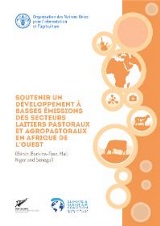 Burkina Faso
Burkina Faso

DC_Burkina Faso
21.5 million
Human population
81.2 million
Livestock population
49% Chickens, 20% Goats ,13% Sheep , 13% Cattle and 5% other
Livestock composition
18.4 percent
Agriculture, forestry, and fishing, value added (% of GDP)
Overview
In Burkina Faso, 1.2 million dairy cows produced over 190 million litres of milk in 2013. More than 60 percent of the milk produced in the country comes from agropastoral systems. The milk yield is at around one litre per cow per day. Both pastoral and agro-pastoral production systems are found all across the country, with pastoral ones generally having the highest animal densities.
Baseline greenhouse gas emissions
The dairy sector of Burkina Faso emitted 17 million tonnes carbon dioxide equivalent (CO2-eq.) of greenhouse gases in 2013. More than half of the greenhouse gas emissions occurred in came from pastoral systems. Methane from enteric fermentation was by far the dominant source of emissions (95 percent). Emission intensity was 125 kg CO2-eq. per kilograms of fat and protein corrected milk (FPCM) in pastoral systems and 62 kg CO2-eq/kg FPCM in agropastoral systems.
Mitigation interventions
Cowpea haymaking in agropastoral systems and forage tree cultivation in pastoral systems showed the highest potential to decrease emission intensity in both agropastoral and pastoral systems. Other measures aimed at improving feeding and animal genetics had also a high potential for impact. Combining different interventions could lead to emission intensity reductions in Burkina Faso, reaching 29 percent in pastoral systems and 31 percent in agropastoral systems. Such an intervention package would have co-benefits for farmers’ income and resilience as the better management of seasonal availability and digestibility of feed resources could also help Burkina Faso face the climate crisis.
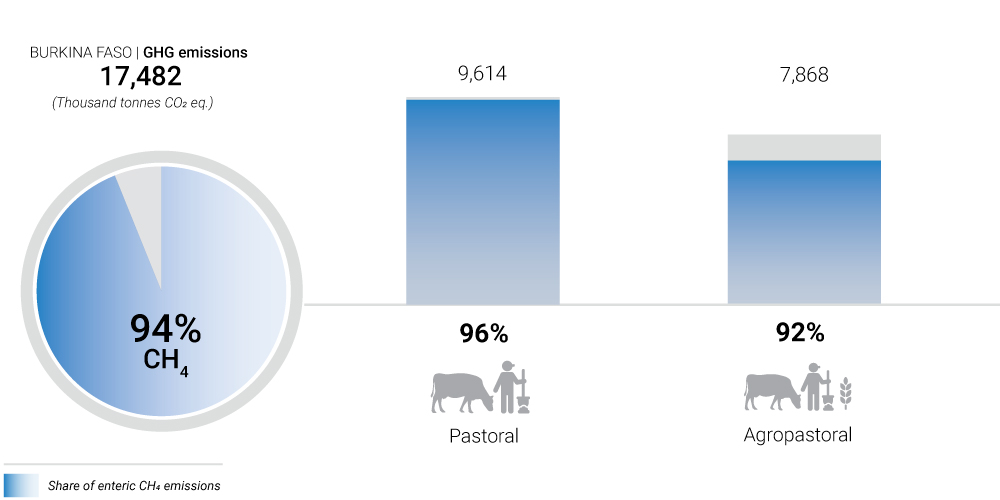
Highlights

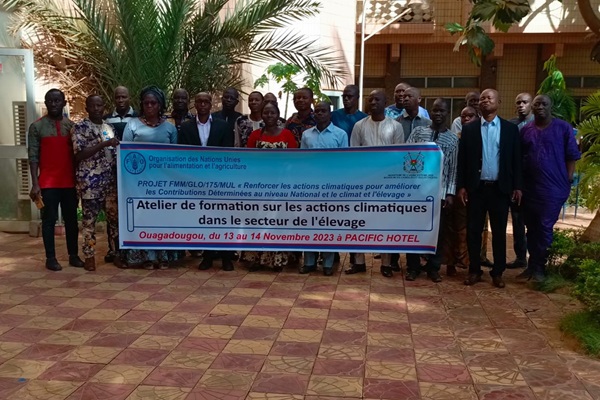
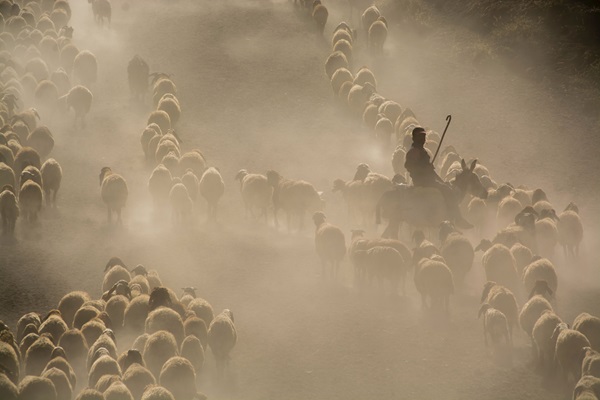


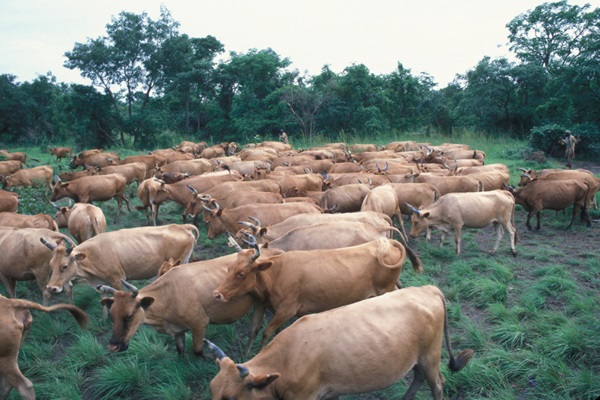
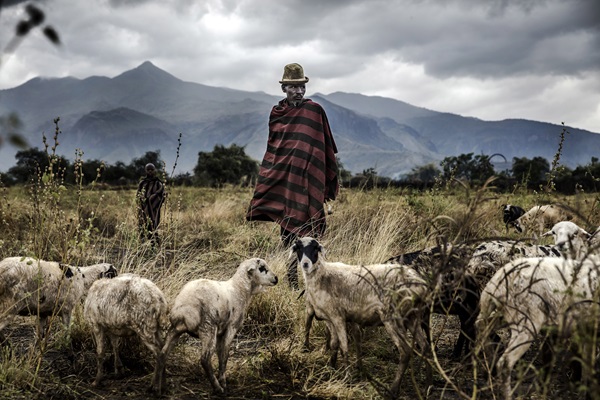


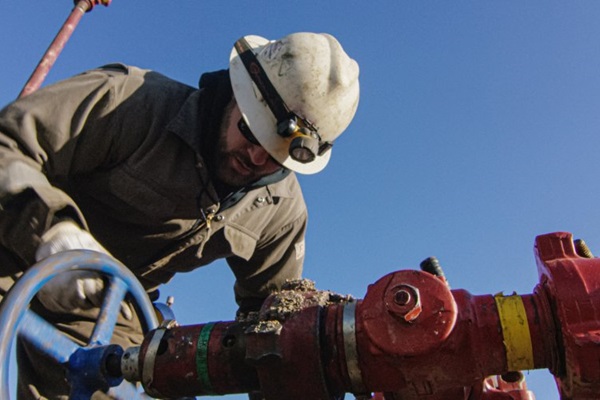

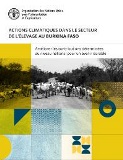
.tmb-th600x450.jpg?Culture=en&sfvrsn=d1641d27_3)
